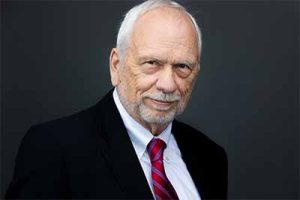Are Millennials over reacting to the COVID-19 crisis? Why are people in the 25-40 age group disproportionately affected by fear and anxiety from COVID-19?[i] Healthcare Hotline telephone evidence suggests that the level of COVID-19 associated anxiety and fear expressed by Millennials, sometimes referred to as “Generation Y,” are vastly exaggerated when compared to the reality of COVID-19 deaths correlated with this age group. Millennials account for approximately for 73 million people in the United States.[ii]
I’ve seen many troubles in my time, only half of which ever came true.
Mark Twain [iii]
People in the Southeastern United States, who needed information about COVID-19, how it affected their health, and in interpreting what they were experiencing reached out for help to a Hotline providing COVID-19 assistance. The news reports about COVID-19 contributed to people being scared. Over 30,000 calls were fielded from mid-March through July 2020. In the beginning, e.g., in March-April 2020, Help Desk professionals could hear TV news reports in the background from the callers’ location.
Most primary care physicians shut down in the service area, which drove people to call the Hotline which was open to all. Callers sought services that included testing, treatment, information, counseling, and insurance help – all offered to callers. The Hotline provided information, triage, routed serious calls to 911, counseled at-home treatment options, and enabled telemedicine support. The availability and types of tests, which were initially difficult to get, were of interest to callers, e.g., some tests provided results in 15 minutes, other tests results took longer, anywhere from 2 hours to 7-10 days.
Calls came in two waves, involving two different age groups. The first wave, included mostly age 55+ callers, reported no symptoms, were extremely anxious, fearful, and they wanted to be tested. The second wave – younger people; began panicking, you could hear the panic in their voices. Some were homeless and had no place to quarantine. Many felt they had contact with an infected person. The younger callers in the second wave did not present as sick as first wave, the reason for which could not be accurately discerned. Notable, and telling, parents often called for their adult children in this second wave.
Millennials had a lot of anxiety. Surprisingly, Hotline staff discovered that many callers did not know how to treat a common cold. COVID-19 was different to them; as they thought they were going to die. Tylenol is a fever treatment but people did not want to take it.
This created a problem for Hotline staff, they had to talk Millennials “off the ledge” and then refer them to reputable sources of information like the Centers for Disease Control and Prevention (CDC), not to rely on internet/social media postings. Before COVID-19, Millennials might get a Z pack at an Urgent Care. Now callers felt they deserved a COVID-19 test – they felt entitled; but could not get tested. Many Millennials may have concluded for example that when vaccines become available, they will most likely not be among the first groups to receive it. When vaccine supplies are limited, the vaccines will go to first responders.
If Millennials had contact with COVID-19 infected person, they needed 14-day quarantine. Millennials did not know how to calm themselves; they displayed no coping skills; they appeared accustomed to instant gratification. The younger 21-24 age group, i.e., Generation Z, seemed especially disappointed they were not infected with COVID-19.
Millennials often went to the Emergency Room when told through the Hotline that they did not meet requirements for testing; resulting in inefficient use of valuable ER space and resources. Millennials did not seem to care about taking ER resources from older patients.
When they found out they did not contract COVID-19, they were disappointed, but why? The problem was the 14-day quarantine. Millennials did not want to suffer the 14-day quarantine.
One thing became quickly evident, callers in the Millennial age group were more anxious about COVID-19 than older callers. However, as data began emerging, the risk of a fatality in their age group was disproportionately lower than the level of anxiety suggested by telephone interactions.
Two factors came into play that signaled Millennial poor coping skills. The first was the inability to gather accurate information from reputable sources. This, in particular, was difficult from the often-conflicting information circulated in the news and social media as the COVID-19 pandemic emerged and spread in the Winter, Spring and early Summer of 2020. The second was lack of skills to assess data and information, and to understand implications for their age group and health situation.
Younger respondents were most likely to suffer mentally from COVID-19. An August 14th Morbidity and Mortality report by the CDC shed light on what was going on. For respondents aged 25 to 44 years old, e.g., the approximate Millennial cohort, 52% reported having at least one adverse mental or behavioral health condition. It was even more dire for those in the 18 to 24 age group (Generation Y more or less), 75% of the age group said the same.[iv]
These symptoms of anxiety reported by the CDC were about three-times higher than reported for the same time in 2019.[v]
This is in stark contrast to the facts as reported by CDC for the period February 1 to June 17, 2020: For those 35 to 44-year-olds, the percentage of Millennial deaths as a percent of all COVID-19 deaths was 2.4%.[vi] The missing link here, is how many people were actually infected?
The Infection Fatality Rate (IFR) provides a different and important perspective, i.e., it provides a hint about the risk posed to Millennials. It answers the question: If I get infected by the COVID-19, what is my risk of dying?
A study of fatalities in Geneva, Switzerland, for the period February 24 through June 2, 2020, provided some insight. It reported 5,039 confirmed cases during this period, and 286 fatalities. This Swiss study estimated the fatality rate for the age group 20-49 years, which approximated the Millennial age group, was only 0.0092%. That is less than 1/100th of a percent and is far less than an estimated 5.6% in the same study for those 65 years and older. About 50% of the fatalities in this older group resided in assisted living facilities.[vii],[viii]
The disparity in expressed anxiety for Millennials compared to the risk of dying (52% expressed anxiety versus 0.0092% fatality risk) is stunning.
Let us acknowledge the disparate time periods covered by this article, Hotline calls from mid-March through July 2020, CDC COVID-19 fatalities from February 1 to June 17, 2020, and IFR data from February 24 through June 2, 2020. Overlapping and inconsistent time periods and perhaps disparate methods admittedly create a lack of consistency for comparisons, compounded by uncertainty in what was being reported to the public. However, even with these concerns, it is difficult to dismiss the large discrepancy of Millennials’ anxiety to their risk of a fatality for their age group.
The key learning from the Hotline calls was that the reason for this exaggerated anxiety, might have been that so many Millennials were self-absorbed. They were not used to being told – no – by their parents. In retrospect parents cleared a lot of obstacles for their children, the children were protected by their parents. In essence, childhood was delayed into later in life, in some cases into their 30’s.
Millennials don’t like to wait, they want things right now, and they form opinions based on what they see on the Internet and social media. They think they are informed, but in reality, they are not as informed as they think they are. Millennials suffer from a lot of anxiety – a response to the question “are you short of breath? – might be “I don’t know.”
Since Millennials do not lack intelligence, it appears that they are not used to solving problems. They suffer from low confidence. Their upbringing sheltered them from gaining experience through failures and successes in life. They need to gain experience through achieving successes in life. And, they need to learn that it is OK to be scared.
Millennials need to think about what they are asking for. They must begin thinking about the bigger picture – not just about “them” – their research is limited; they may need to learn to innovate. Problems happen, they need to learn to survive. Stop watching the news and the Internet. Find reliable sources of information.
What does the future look like for Millennials? They will have a hard time in life; may feel cheated and may blame other people. Millennials need to take charge of their lives, mainly they need to establish a relationship with a Physician. If Millennials think they can get all they want now, this is not reality.
Could there be a better way for Millennials to learn about risk, at the individual personal level than through the companies they work for? Perhaps not, and businesses could gain a better understanding about how the fear of COVID-19 affects their Millennial employees.
References:
[i] This article was informed by an interview with an experienced healthcare professional with knowledge of COVID-19 Hotline calls.
[ii] Age categories: https://www.kasasa.com/articles/generations/gen-x-gen-y-gen-z
[iii] Mark Twain quote, https://www.wow4u.com/mtwain/
[iv] These Age Groups Most Affected by COVID-Related Depression, Anxiety, June 29, 2020. https://hartfordhealthcare.org/about-us/news-press/news-detail?articleid=26831&publicId=395
[v] Alexa Lardieri, Aug. 13, 2020. Coronavirus Pandemic Causing Anxiety, Depression in Americans, CDC Finds. https://www.usnews.com/news/health-news/articles/2020-08-13/coronavirus-pandemic-causing-anxiety-depression-in-americans-cdc-finds
[vi] Alex Berezow, PhD, June 23, 2020. Coronavirus: COVID Deaths In U.S. By Age, Race. https://www.acsh.org/news/2020/06/23/coronavirus-covid-deaths-us-age-race-14863
[vii] Ibid
[viii] JavierPerez-Saez, et al. Serology-informed estimates of SARS-COV-2 infection fatality risk in Geneva, Switzerland. June 15, 2020. https://osf.io/wdbpe/



 The intent of this site is to be a resource for those who value their personal and professional well-being. Specifically, for those seeking information on identifying change before it happens, responding to change when it does, and exploring uncertainty when conditions and assumptions change.
The intent of this site is to be a resource for those who value their personal and professional well-being. Specifically, for those seeking information on identifying change before it happens, responding to change when it does, and exploring uncertainty when conditions and assumptions change.